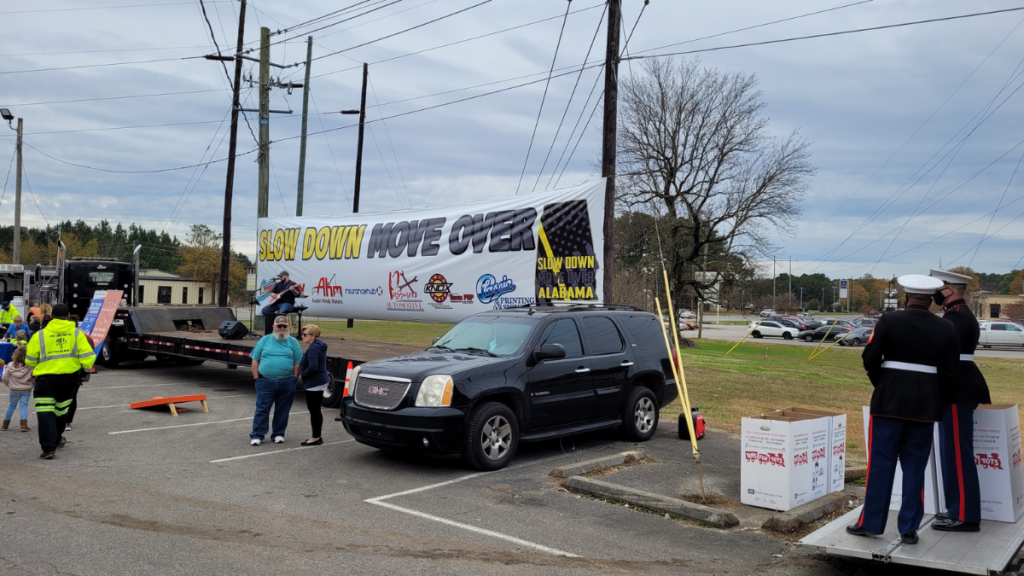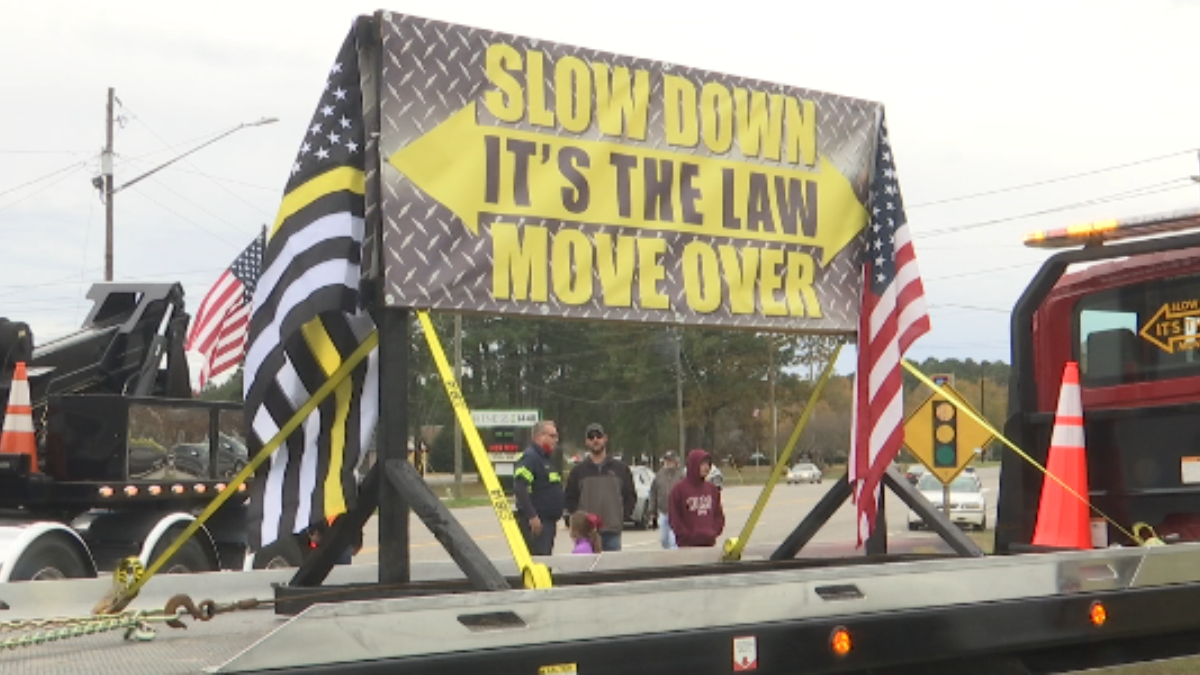MONTGOMERY, AL — In an effort to improve safety for roadside workers, law enforcement officers, and emergency responders, Alabama has recently strengthened its “Move Over” law, making violations more strictly enforced and penalties more severe.
The state joins a growing number of jurisdictions nationwide emphasizing the importance of protecting those who work on or near roadways, where traffic-related accidents continue to pose significant dangers.
The reinforcement of the law reflects increasing concerns over the number of injuries and fatalities involving roadside personnel, including tow truck operators, highway maintenance crews, law enforcement officers, and emergency medical responders.
According to the Alabama Law Enforcement Agency (ALEA), dozens of such incidents occur every year, some with tragic consequences.
What is the “Move Over” Law?
Alabama’s “Move Over” law requires motorists to take specific precautions when approaching stationary emergency vehicles, tow trucks, utility vehicles, or any vehicle displaying flashing lights on the roadside. The law mandates that drivers:
- Change lanes to move over at least one lane away from the stopped vehicle if it is safe to do so.
- If changing lanes is not possible, slow down to a safe speed that is below the posted limit.
The purpose of the law is to create a safer space for workers and responders performing their duties on busy highways, giving them a buffer zone from passing traffic.
Under the reinforced law, failure to comply with these requirements can result in hefty fines, points against the driver’s license, and even criminal charges in cases where violations cause injury or death.
Why Reinforce the Law Now?
State officials point to a concerning rise in roadside incidents involving injuries to emergency personnel and other workers. In 2024 alone, Alabama reported over 150 accidents involving vehicles with flashing lights on the shoulder, resulting in serious injuries in some cases.
“Every year, lives are put at risk simply because drivers don’t slow down or move over when they see flashing lights,” said Colonel John Richardson, director of ALEA. “This law is about respecting those who keep our roads safe — our police officers, firefighters, tow operators, and highway crews.”
Public safety advocates argue that stronger enforcement and stiffer penalties are necessary to change driver behavior and raise awareness about the dangers roadside workers face daily.

Details of the Reinforced Law
The updated “Move Over” law, effective from January 2025, includes several key changes:
- Increased fines: First-time offenders now face fines ranging from $250 to $500, a significant increase from previous penalties.
- Points on driver’s license: Violations add points to the offender’s driving record, potentially leading to license suspension for repeat offenders.
- Criminal charges: Drivers causing injury or death due to failure to comply may face misdemeanor or felony charges depending on the severity.
- Expanded coverage: The law now explicitly includes tow trucks, highway maintenance vehicles, and other non-emergency roadside service vehicles displaying flashing amber or red lights.
Law enforcement agencies across Alabama are ramping up efforts to educate the public and increase patrols on highways to catch violators. The ALEA and local police departments have also launched awareness campaigns through social media, billboards, and community events.
How the Law Protects Roadside Workers
The reinforced law is designed to reduce what safety experts call “struck-by” accidents — incidents where roadside workers are hit by passing vehicles. The dangers are particularly acute on high-speed interstates and highways, where drivers sometimes fail to notice or react in time to stopped vehicles and personnel.
Tow truck operators, for example, are among the most vulnerable groups on Alabama roads. According to the National Highway Traffic Safety Administration (NHTSA), tow truck workers face one of the highest risks of fatal workplace injuries.
Jessica Murphy, a tow truck driver based in Birmingham, described the dangers: “We’re often working in tight spaces just feet from fast-moving traffic. When drivers don’t move over, it feels like we’re invisible out there.”
Emergency responders echo similar concerns. Firefighter Samuel Lee of Montgomery said, “The move over law saves lives. But it only works if drivers respect it. This reinforcement sends a clear message that safety is non-negotiable.”
Public Response and Challenges
While many drivers support the tougher regulations, some express frustration with increased fines and stricter enforcement, especially in heavy traffic or complex road conditions where moving over may be difficult.
“I try to be careful, but sometimes there’s just nowhere to go,” said Amanda Foster, a commuter in Huntsville. “I hope the law doesn’t punish people unfairly.”
To address these concerns, officials emphasize that the law requires moving over only when it is safe to do so, and slowing down otherwise. The message is not about reckless driving but responsible caution.
How to Comply with Alabama’s Move Over Law
To ensure compliance, motorists should remember these simple steps when approaching emergency or service vehicles on the roadside:
- Stay alert: Always watch for flashing lights and be prepared to slow down.
- Change lanes: Move over one lane away from the stopped vehicle if it’s safe.
- Slow down: If you can’t safely change lanes, reduce speed below the posted limit.
- Be patient: Traffic may slow, but the safety of roadside workers and responders is paramount.
Law enforcement encourages drivers to familiarize themselves with the new provisions and spread awareness to friends and family.
Conclusion: Saving Lives One Lane at a Time
Alabama’s decision to reinforce its “Move Over” law underscores the state’s commitment to safeguarding those who risk their lives working on the roads. With stiffer penalties and broader protections, officials hope to see a measurable decline in accidents involving roadside workers.
“Every motorist has a role to play,” said Colonel Richardson. “A simple lane change or slowing down can mean the difference between life and death for someone just doing their job.”
To learn more about Alabama’s Move Over law and how you can help protect roadside workers, visit the Alabama Law Enforcement Agency’s official website.
Disclaimer – Our team has carefully fact-checked this article to make sure it’s accurate and free from any misinformation. We’re dedicated to keeping our content honest and reliable for our readers.
